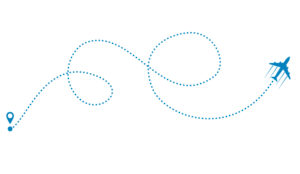Despite the complexity facing an international airline like British Airways, its challenge is essentially a very simple one. Remain clear and single minded about what the BA brand stands for, its purpose, and ensure its people deliver an outstanding experience to target customers who board their aircraft every day.
I realise this probably sounds trite but for many years now BA has been confused about its purpose and has allowed its point of difference to be eroded. This can be seen very clearly in the airline’s response to Ryanair and the other low cost carriers who have experienced rapid growth over the last decade or more.
The British flag carrier has a heritage that is the envy of every airline across the globe:
- An international route network built up over the last 70 years
- Slot dominance at Heathrow, the busiest international hub in the world
- Deep expertise in all aspects of aviation operations
- A history of innovation with pioneering new routes and services opened-up around the world
- Most importantly a brand that is synonymous with some of the best traditions of Britain’s reputation in the field of international aviation – quality, world leading expertise, training that is second to none and a calm confidence under pressure
Despite these advantages, BA nonetheless seems to be making life difficult for itself as carriers such as Ryanair have discovered the importance of taking care of customers and BA have seemingly got meaner.
The standards of service that BA customers have grown to expect have been slipping. Earlier this year BA stopped giving free drinks and snacks on short haul flights – a paid M&S offering is now available when they don’t run out!!
BA has also been getting some bad press about their operational efficiency. Ryanair boasts punctuality and baggage performance that is superior to BA’s. Also, it was recently reported in The Guardian that a Barbados flight from Gatwick was delayed hours while the ground staff restocked the aircraft because of a shortage of toilet rolls.
BA has become giddy and confused in it’s response to the growth of the low (and lower) cost airlines that often offer reliable efficient services at a fraction of the price of British Airways. BA’s response: compete head on with the low-cost carriers and to do that they have needed to slash costs, including the costs of the cabin crew – which has provoked a series of strikes and created a real morale problem amongst BA’s staff.
In trying to compete head on with the low-cost carriers, British Airways has confused its customers and its staff. BA has failed to leverage its strengths and differentiate itself and in so doing it has undermined the strength of its brand.
The personality of the brand, the experience and the innovation that BA was recognised for has been lost as the airline has become just another, middle of the road airline – good on some days and not so good on others. The staff look as disappointed as the passengers and To Fly to Serve, BAs strapline, seems a long way from the reality.
Rather than trash its brand, what should BA’s response have been to the growth of the low-cost carriers? Two simple choices:
1. Not compete for that segment of customers who are motivated only by low prices – there is plenty of evidence that there is a very large and growing segment of passengers who are willing to pay a little more for a quality economy cabin offering delivered by people who genuinely care.
2. Establish a different brand to serve them
These are not either/or choices. BA could do both.
In a moment of déjà vu, it was announced this month that British Airways parent company IAG is launching Level, a low-cost airline that will operate trans-Atlantic routes from its base in Barcelona. This looks like a tactical response to a market opportunity – nothing wrong with that – but it does not help solve the confusion that BA’s many stakeholders have with the BA brand….Oh and the déjà vu?
Twenty years ago BA established GO, a low-cost carrier operating out of Stanstead that was sold to Easyjet in 2002.
Perhaps BA would do well to stick to what it does (or used to do) better than any other airline in the world.
Author: Guest Author
Published On: 5th Apr 2017 - Last modified: 12th Dec 2018
Read more about - Guest Blogs




































Excellent example of a company who lost sight of their purpose and distinct advantage in the marketplace. Thanks for sharing!